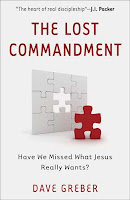 It is time for a FIRST Wild Card Tour book review! If you wish to join the FIRST blog alliance, just click the button. We are a group of reviewers who tour Christian books. A Wild Card post includes a brief bio of the author and a full chapter from each book toured. The reason it is called a FIRST Wild Card Tour is that you never know if the book will be fiction, non~fiction, for young, or for old...or for somewhere in between! Enjoy your free peek into the book!
It is time for a FIRST Wild Card Tour book review! If you wish to join the FIRST blog alliance, just click the button. We are a group of reviewers who tour Christian books. A Wild Card post includes a brief bio of the author and a full chapter from each book toured. The reason it is called a FIRST Wild Card Tour is that you never know if the book will be fiction, non~fiction, for young, or for old...or for somewhere in between! Enjoy your free peek into the book!
You never know when I might play a wild card on you!
Today's Wild Card author is:
and the book:
The Lost Commandment: Have We Missed What Jesus Really Wants?
Kregel Publications (June 3, 2009)
***Special thanks to Cat Hoort of Kregel Publications for sending me a review copy.***
ABOUT THE AUTHOR:

Dave Greber is an attorney in private practice. As a leader in his community, he has been interviewed by television, radio, and newspaper reporters and has served on the boards of several community organizations. Dave and his wife, Lynne, cofounded Live Faith Ministries, an organization teaching Christians how to experience the amazing joy of Christ.
Visit the author's website.
Product Details:
List Price: $13.99
Paperback: 256 pages
Publisher: Kregel Publications (June 3, 2009)
Language: English
ISBN-10: 0825429358
ISBN-13: 978-0825429354
AND NOW...THE FIRST CHAPTER:

Introduction
“Do to others as you would have them do to you.” That’s what my pastor preached, quoting the Golden Rule from Luke 6:31. It was an ordinary Sunday, and I settled in for a good sermon on a very familiar theme. As I listened, I looked through the four Gospels to read what Jesus said about love.
And then my eyes landed on twenty words that changed my life: Jesus said, “A new command I give you: Love one another. As I have loved you, so you must love one another” (John 13:34).
I’d been a Christian for twenty-five years. How could I have missed this commandment? But when I talked to my Christian friends about it, they too seemed to have missed it. Every person I asked about Jesus’ new commandment answered me with a blank stare.
No problem, I thought. Somewhere there must be shelves of books about the new commandment. After all, it was among Jesus’ last words at the Last Supper. He even repeated it (John 15:12, 17). And it’s been two thousand years since the new commandment was given. It’s not so new anymore.
So I went looking. I asked my most devout Christian friends whether they knew of any books on the new commandment. I went to Christian bookstores. I searched the Internet. I went to a seminary library. I found almost nothing—and nothing at all of book-length—on what I now consider to be the “Lost Commandment.”
I continued to study John 13–16. As I did—as I realized the significance of the Lost Commandment and in particular the surprising link between obedience to the Lost Commandment and joy—my life changed. Jesus said, in effect, “Do you want me to take joy in you? Do you want to experience complete joy? Then do this: love others as I have loved you!” (John 15:10–12, author’s paraphrase).
Practicing obedience to the Lost Commandment brings our faith alive—a faith that results in an amazing, joy-filled life. We discover God’s purpose for our lives. We experience Jesus’ presence and become more like him as we love others the way he loves us. The Lost Commandment also changes our prayer lives. It enables us to better understand God’s will on a day-to-day, moment-by-moment basis. Our relationships improve as we love others the way Jesus loves us. And those who don’t know Jesus sense his presence in our lives and want to know more about him. No other verse—including the Golden Rule—better summarizes how God expects Christians to treat other people.
Jesus wants us to experience the complete joy of knowing his will. He doesn’t want us to live our lives wondering, “What would Jesus do?” Instead, he wants us to know the answer to “What did Jesus do?” And then he wants us to do likewise in the power of the Holy Spirit.
This book is a practical guide to loving others in obedience to the Lost Commandment. Two premises guide the way this book is organized and written. The first is that we must focus on the Lost Commandment itself in order to follow it. Jesus said that our obedience to this commandment brings joy to him and complete joy to us. And in chapter 1, I describe some of the ways we experience this joy, which thrives even in the midst of pain and adversity.
The Lost Commandment is different from the Golden Rule. That’s why Jesus called it “new.” No doubt, the world would be a much better place if everyone did follow the Golden Rule. But true as this statement is, it misses the point: Jesus commanded us to go into the world teaching others everything that he had commanded us (Matt. 28:20). In chapter 2, then, I explain how the Golden Rule is different from the Lost Commandment, and why I believe Jesus intended to replace the Golden Rule with the Lost Commandment.
The second premise of this book is that everything that Jesus has done for humankind throughout history, as revealed in the Bible or experienced in our individual lives, is both an expression of his love for us and an example of how we are expected to love others. Therefore, to obey the Lost Commandment, we have to become students of Jesus’ love for us so that we can better love others in this same way. Part of what brings us joy as we obey the Lost Commandment is, in fact, having a better understanding of the depth and breadth of Christ’s love for us.
Whether you agree with the first premise of this book or not, the second premise stands on its own. It is not controversial, and represents the majority of the teaching of this book (chapters 1, and 3 through 18). As followers of Jesus, we are called to demonstrate his presence in our lives by the way that we love others (John 13:35). His life is our life example (John 13:15; 1 Cor. 11:1; 1 Tim. 1:16; 1 Peter 2:21).
As we study Jesus’ love for us, particularly as revealed in the New Testament, we discover that it has six major elements that follow a logical sequence and yield practical principles for our lives with God and others. Parts 2 through 7 of this book express these elements as themes.
To follow Jesus, we must have a close, personal relationship with God, whose love for us can heal the pain in our lives, as we follow in Jesus’ loving footsteps (part 2).
Our relationship with God requires us to accept Christ’s mission to transform our lives, and to bring others into a close, personal relationship with God. We do our part primarily by paying Jesus’ love forward to others with the help of the Holy Spirit (part 3).
Our mission, like Christ’s, is an expression of humility toward God and others (part 4).
As we follow Jesus’ example, our humble dependence on God enables us to tap into God’s power through obedience to his commands, the most important of which is to love others as Jesus has loved us. The Holy Spirit gives us the power and understanding that we need to obey God as we speak with God, study his Word, and learn from others who follow Jesus (part 5).
Our humble obedience to Christ leads us to forgive and serve others. God’s forgiveness (part 6) makes it possible for us to become reconciled to him. He commands us to forgive others as he has forgiven us, and he empowers us to reconcile with them. He also helps us to act as peacemakers who help others find peace with each other.
As Christ lived his life on earth in service to us (part 7), so he calls us to serve others as though we were serving Jesus himself. We are called to give time and money to those most in need, according to the priorities God gives to each of us.
This book provides more, though, than an overview and a framework for understanding Jesus’ love. It also contains insights and illustrations that demonstrate how to allow Jesus’ love to flow to others through our lives. Whether you don’t know Jesus, you’ve just met him, or you’ve known him for years, this book will help you experience the complete joy that comes from loving others as he has loved us.
I pray that the Holy Spirit will use this book to help you find the only love that brings complete joy, and that leads not merely to life but to abundant life.
“Do to others as you would have them do to you.” That’s what my pastor preached, quoting the Golden Rule from Luke 6:31. It was an ordinary Sunday, and I settled in for a good sermon on a very familiar theme. As I listened, I looked through the four Gospels to read what Jesus said about love.
And then my eyes landed on twenty words that changed my life: Jesus said, “A new command I give you: Love one another. As I have loved you, so you must love one another” (John 13:34).
I’d been a Christian for twenty-five years. How could I have missed this commandment? But when I talked to my Christian friends about it, they too seemed to have missed it. Every person I asked about Jesus’ new commandment answered me with a blank stare.
No problem, I thought. Somewhere there must be shelves of books about the new commandment. After all, it was among Jesus’ last words at the Last Supper. He even repeated it (John 15:12, 17). And it’s been two thousand years since the new commandment was given. It’s not so new anymore.
So I went looking. I asked my most devout Christian friends whether they knew of any books on the new commandment. I went to Christian bookstores. I searched the Internet. I went to a seminary library. I found almost nothing—and nothing at all of book-length—on what I now consider to be the “Lost Commandment.”
I continued to study John 13–16. As I did—as I realized the significance of the Lost Commandment and in particular the surprising link between obedience to the Lost Commandment and joy—my life changed. Jesus said, in effect, “Do you want me to take joy in you? Do you want to experience complete joy? Then do this: love others as I have loved you!” (John 15:10–12, author’s paraphrase).
Practicing obedience to the Lost Commandment brings our faith alive—a faith that results in an amazing, joy-filled life. We discover God’s purpose for our lives. We experience Jesus’ presence and become more like him as we love others the way he loves us. The Lost Commandment also changes our prayer lives. It enables us to better understand God’s will on a day-to-day, moment-by-moment basis. Our relationships improve as we love others the way Jesus loves us. And those who don’t know Jesus sense his presence in our lives and want to know more about him. No other verse—including the Golden Rule—better summarizes how God expects Christians to treat other people.
Jesus wants us to experience the complete joy of knowing his will. He doesn’t want us to live our lives wondering, “What would Jesus do?” Instead, he wants us to know the answer to “What did Jesus do?” And then he wants us to do likewise in the power of the Holy Spirit.
This book is a practical guide to loving others in obedience to the Lost Commandment. Two premises guide the way this book is organized and written. The first is that we must focus on the Lost Commandment itself in order to follow it. Jesus said that our obedience to this commandment brings joy to him and complete joy to us. And in chapter 1, I describe some of the ways we experience this joy, which thrives even in the midst of pain and adversity.
The Lost Commandment is different from the Golden Rule. That’s why Jesus called it “new.” No doubt, the world would be a much better place if everyone did follow the Golden Rule. But true as this statement is, it misses the point: Jesus commanded us to go into the world teaching others everything that he had commanded us (Matt. 28:20). In chapter 2, then, I explain how the Golden Rule is different from the Lost Commandment, and why I believe Jesus intended to replace the Golden Rule with the Lost Commandment.
The second premise of this book is that everything that Jesus has done for humankind throughout history, as revealed in the Bible or experienced in our individual lives, is both an expression of his love for us and an example of how we are expected to love others. Therefore, to obey the Lost Commandment, we have to become students of Jesus’ love for us so that we can better love others in this same way. Part of what brings us joy as we obey the Lost Commandment is, in fact, having a better understanding of the depth and breadth of Christ’s love for us.
Whether you agree with the first premise of this book or not, the second premise stands on its own. It is not controversial, and represents the majority of the teaching of this book (chapters 1, and 3 through 18). As followers of Jesus, we are called to demonstrate his presence in our lives by the way that we love others (John 13:35). His life is our life example (John 13:15; 1 Cor. 11:1; 1 Tim. 1:16; 1 Peter 2:21).
As we study Jesus’ love for us, particularly as revealed in the New Testament, we discover that it has six major elements that follow a logical sequence and yield practical principles for our lives with God and others. Parts 2 through 7 of this book express these elements as themes.
To follow Jesus, we must have a close, personal relationship with God, whose love for us can heal the pain in our lives, as we follow in Jesus’ loving footsteps (part 2).
Our relationship with God requires us to accept Christ’s mission to transform our lives, and to bring others into a close, personal relationship with God. We do our part primarily by paying Jesus’ love forward to others with the help of the Holy Spirit (part 3).
Our mission, like Christ’s, is an expression of humility toward God and others (part 4).
As we follow Jesus’ example, our humble dependence on God enables us to tap into God’s power through obedience to his commands, the most important of which is to love others as Jesus has loved us. The Holy Spirit gives us the power and understanding that we need to obey God as we speak with God, study his Word, and learn from others who follow Jesus (part 5).
Our humble obedience to Christ leads us to forgive and serve others. God’s forgiveness (part 6) makes it possible for us to become reconciled to him. He commands us to forgive others as he has forgiven us, and he empowers us to reconcile with them. He also helps us to act as peacemakers who help others find peace with each other.
As Christ lived his life on earth in service to us (part 7), so he calls us to serve others as though we were serving Jesus himself. We are called to give time and money to those most in need, according to the priorities God gives to each of us.
This book provides more, though, than an overview and a framework for understanding Jesus’ love. It also contains insights and illustrations that demonstrate how to allow Jesus’ love to flow to others through our lives. Whether you don’t know Jesus, you’ve just met him, or you’ve known him for years, this book will help you experience the complete joy that comes from loving others as he has loved us.
I pray that the Holy Spirit will use this book to help you find the only love that brings complete joy, and that leads not merely to life but to abundant life.


















2 comments and creative thoughts:
Thanks for letting people know about my book, The Lost Commandment: Have We Missed What Jesus Really Wants?
Even after finishing the book, I continue to learn more about the importance of Jesus’ command that we love others as he has loved us (John 13:34)(what I call “the Lost Commandment”). For example, after Jesus' resurrection, he told us to make disciples of all nations by baptizing new Christians and teaching them to obey everything that he has commanded us (Matt. 28:18-20). I feel sure that Jesus intended us to teach each other to obey all of his teachings, but what is the only "command" that Jesus actually gave us? You guessed it. He said, "My command is this: Love each other as I have loved you" (John 15:12)(NIV). I somehow managed to omit that from the book.
Another thought that occurred to me after writing the book is the importance of obeying this commandment in order to remember Jesus' love for us. Jesus gave the new commandment at the same time he gave us what we now celebrate together as communion. Jesus told the disciples to eat the bread and drink the wine (or grape juice :) ) in remembrance of him. As human beings, we are so prone to forgetting what Jesus has done for us. Well, it strikes me that obeying the Lost Commandment is a great way of remembering Jesus' love for us. The Commandment prompts us to recall Jesus' love for us in order to direct how we are to love each other. Most of us don't take communion every day, but we do encounter other people every day. So obedience to the Lost Commandment is a more constant reminder of Jesus' love than communion!
The Lost Commandment is also so important when it comes to teaching children about Jesus. I think that most of us grew up hearing something like this when being discipled / disciplined by our parents: "Now, Billy, you don't want to share your toy with Johnny. But is that the way you would want Johnny to treat you?" Or, "What if everyone in the world acted the way you are acting, Dave?" These are good questions to ask if you are training a child to obey the Golden Rule. But this approach doesn't point Billy, Johnny, or Dave directly toward Jesus, or teach them how Jesus has loved them, or give them the true model, means, or motivation for loving others. To me, this is huge. How much better would it be to say to our kids, "Now, Billy, you know that Jesus loves you so much that he blessed you with that toy. And he wants you to love other people the way he has loved you. So don't you think you should share your toy with Johnny?" The teaching moment becomes a true moment of discipleship, by giving the parent the opportunity to teach the child about the love of Christ, and then demonstrate how that love should be paid forward in obedience to Jesus' command in a very practical, personal way. This is how I think we are supposed to train up our children in the way they should go. I can't help but think that if we did this, our children would be better equipped to fully embrace their faith, so that when they are on their own, they are prepared to stand as Christian adults.
I wrote The Lost Commandment with personal devotional study and small group study in mind. The application questions at the end of each chapter are primarily intended for personal devotional study, but they can also be used for small group study. Your readers may be interested to know that I also have a small group study guide, questions for an eight-week study, and chapter questions, available for free download on my website: www.davegreber.com. Also, if your readers are looking for a speaker, I would be delighted to come speak to their church or other group.
Thanks again for your review.
Love in Christ,
Dave Greber
Blessings, andrea
Post a Comment